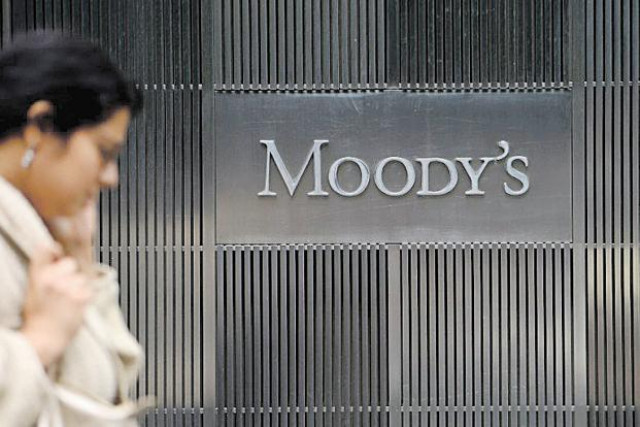Moody’s changes banks’ rating outlook
Global agency confirms B3 long-term local currency rating for 5 banks

Moody’s Investors Service has reaffirmed Pakistan banks’ long-term local currency deposit rating with a stable outlook from the earlier stance of ratings under review for possible downgrade, meaning the government is capable of injecting money into its financial system, if required.
“Moody’s confirmed the B3 long-term local currency and Caa1 foreign currency deposit ratings of five Pakistani banks, including Allied Bank Limited (ABL), Habib Bank Limited (HBL), MCB Bank Limited (MCB), National Bank of Pakistan (NBP) and United Bank Limited (UBL),” the rating agency said in a statement.
“The outlook on all Pakistani banks’ long-term local currency deposit ratings has changed to stable from ratings under review. This rating action concludes the review (for possible downgrade) initiated on May 19, 2020.”
The global credit rating agency made the announcement about bank ratings after reaffirming last week the government of Pakistan’s local and foreign credit ratings (B3) with a stable outlook following a review for possible downgrade.
It reposed confidence in the government that it was capable of paying back foreign debt, especially to private sector creditors, instead of defaulting on payments. The rating agency found a connection between the government’s financial situation and the country’s financial system.
“Moody’s decision to confirm Pakistan’s B3 government bond ratings with a stable outlook also results in the stabilisation of Moody’s view about the capacity of the government to support the country’s banks in case of need,” it said.
“Moody’s decision to confirm the banks’ ratings follows Moody’s decision to confirm Pakistan’s B3 sovereign ratings, which signals reduced pressure on Pakistan’s credit profile, indirectly supporting bank ratings, given their high exposure (lending) to government credit risk…renders the banks susceptible to event risk at the sovereign level and constrains their Baseline Credit Assessments (BCAs),” it added.
The government, however, heavily relies on foreign financing to meet its external expenditure as it is under the International Monetary Fund’s (IMF) loan programme, which would be sufficient to meet its 12 to 18-month financing requirements.
“Improvements in the operating environment and the sovereign’s credit risk profile, combined with improvements in banks’ solvency metrics (profitability, asset quality and capital), could place upward rating pressures,” it said.
“Conversely, downward pressure on banks’ ratings would develop following a downgrade of the sovereign rating, reflecting the high interlinkage between the banks’ credit profile and that of the government, and signalling a reduction in the government’s capacity to extend financial support to banks in case of need,” the statement added.
“Downward pressure on the BCAs of individual banks could also develop from a greater-than-expected deterioration in operating conditions from the coronavirus spread, weakening their asset quality, profitability and capital adequacy.”
Published in The Express Tribune, August 13th, 2020.
Like Business on Facebook, follow @TribuneBiz on Twitter to stay informed and join in the conversation.


















COMMENTS
Comments are moderated and generally will be posted if they are on-topic and not abusive.
For more information, please see our Comments FAQ